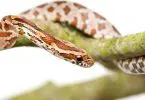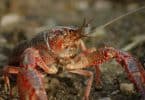Digging holes is a very common habit in turtles. They dig holes in the wild but also in cozy setups of home. Sometimes, you see them try to dig the gravel of the tank. At the same time, the others are found spading the lawn.
Living with a turtle can be very interesting. Not only do you get a chance to enjoy the company of one of the most introverted beings, but you also poke into the mysteries of the reptilian kingdom.
From the very beginning, I saw my turtle try to dig holes everywhere… literally EVERYWHERE! At first, I used to think I missed something in ensuring a perfect house for my turtle. However, as I worked up a whole new So, I worked a lot, and a whole new world of mysteries opened to me.
In this article, I am going to discuss the same. So, continue with me till the very end, cause otherwise, you are going to miss some really interesting facts.
Table of Contents
Why Turtles Dig A Lot?
Digging holes helps turtles to locate food and find a safe shelter. Holes are the best place for hibernation and finding small insects and worms to feed.
These are the most common reasons you can find anywhere. However, the interesting fact is that digging behavior in turtles is not only just for survival. Your turtle may also dig holes just for fun! It can be a nice exercise, reviving its wild behaviors.
Sometimes, digging can be dangerous. For example, if your turtle is lacking calcium and other nutrients in the diet, it will start eating inanimate objects. The smell and sense of minerals in soil and stores make them dig it and eat. Alarming, right.
However, most of the time, it is for food, shelter, and egg-laying. However, how do you differentiate between the different reasons behind this turtle’s behavior?
In this article, let us discuss all these behaviors in detail so you can easily tell when you should visit your vet and when you can manage things yourself.
Reasons Your Turtle Is Digging Holes
Following is a detailed description of all the reasons why your turtle is digging holes.
- Its turtle’s hibernation season:
Why Do Turtle’s Hibernate? It is a complete discussion. But if you ask, they do? Then Yes. Turtles do hibernate like other reptiles and amphibians, including frogs. Turtles hibernate in winter. Hibernation is to increase the chances of their survival from the extreme temperatures of the surrounding. Also, they do not have to hunt any food while in this phase.
Before going into hibernation, they find safe spots in the ground for them. The spots should not only protect them from predators but also keep them still in one place. That’s why, when the turtles sense through their body’s natural clock that it is the time for hibernation, they will start digging.
This behavior is not only evident in the wild, but multiple pets in home settings are also seen exhibiting the same. So, it seems that digging before hibernation is not only to find shelter but also to increase the metabolic run to keep the bodies warm just before the extreme season.
When the temperature falls way below 5 degrees centigrade, the turtle’s metabolism starts getting slow. Finally, it goes to 5% of the original one! But no, your turtle is not dead. The hole it dug will help it successfully out from this season of dormant living.
So, if your turtle is digging in this season, you do not need to worry a bit about it. In fact, it is healthy for your turtle to show this behavior.
Is My Turtle Burying Itself?
Digging holes while in hibernation may seem like your turtle is trying to bury itself into the mud. However, it is completely normal. Sometimes, if this behavior is out of season it can depict a serious depression, or egg laying. Turtle may also seem burying itself during the behaviors of aestivation and foraging.
Aestivation is completely opposite of hibernation. If hibernation is winter sleep, aestivation calls for a summer sleep.
Turtle Is Preparing To Lay Eggs
Turtles are oviparous. It means they lay eggs and do this in a very large number. So, another most probable reason for digging holes by turtles is when it’s time to lay eggs.
If you are aiming for breeding, a female turtle will start digging in different places to lay eggs. It is the hunt for the safest spot she could provide to its young ones. Some turtles, as Gavid turtles, also dig multiple holes. This behavior is developed by years of learning to deceive a predator who is hunting for its eggs. In fact, hole digging gives the eggs enough time to hatch by keeping the predators roaming in the wrong places. Common predators for pet turtles are snakes, rats, foxes, etc.
Turtles also show this behavior in the tank like they have developed in the wild. However, if you are confused if your turtle is digging holes to lay eggs or for other purposes following points can help you identify the cause:
- Female turtles who are expecting to lay eggs usually only dig holes to find a safe haven for their eggs.
- If the turtle is digging with its hind legs, it is for laying eggs. Otherwise usually, turtles dig with their forelegs for other purposes.
- If the turtle is backing into the dug hole, it is for laying eggs. Otherwise, they go in from their head side.
- If the hole is deep, it is for egg-laying. The deeper is the whole, the safer it is for the turtle to lay eggs. Female turtles dig deep holes to provide smooth hiding for their eggs and help them survive the groups of predators hunting for them.
- If a turtle repacks the hole with sticks and dirt, it is for laying eggs. The holes filled with or to be filled with eggs are camouflaged in the environment in a way that they seem like the same as the beginning.
If your female turtle is aiming to lay an egg in a tank, these behaviors may not be evident. It is because animals are smart enough to detect the safety and positivity of their surrounding. However, if your turtle is doing so, it doesn’t mean it fears something. Simply, it is the application of the behaviors its ancestors developed in the wild from the experience of such man-years.
Your Turtle Is Foraging
Tortoise and turtles are food beggers. If they sense some food in their surroundings, they will try to hunt it. Moreover, if you do not feed your turtle with enough food, it will dig into the land to find insects to fill its stomach.
How would you recognize if your turtle is digging holes to locate food? If your turtle is hunting food, the dug holes will be shallow and frequent in number.
However, as pet turtles are usually well-fed, you seldom see such behavior in them. In the wild, turtles usually forage to find the best meal. Also, if the pet turtle is exhibiting such behavior, it might also indicate malnutrition. It means it is lacking in vital nutrients and minerals. Make sure you feed a diet rich in vitamins and minerals. Lots of greens balanced with protein options will ensure a well-balanced diet.
Your Turtle Is Ready For Aestivation
Aestivation, as discussed before, is just hibernation in summer. Turtles slow down their metabolism in summers, too, and enjoy a night of deep sleep.
In fact, aestivation is one of the ways to protect the turtle from extreme weather. In high temperatures, turtles dig deep holes in the ground and hide in them to protect their body from the scorching heat of summers.
So, if you see your turtle digging and resting in summers, see if the temperature is too hot for its survival. Even if the temperature is quite ok, the turtle may still aestivate. The behavior is explained by continuing the developed survival behaviors in the wild as pets too.
Turtle Is Eating Rocks
Geophagy or eating rocks is very commonly reported in pet amphibians and reptiles. Although this behavior cannot be well justified, herpetologists found some common reasons to debate on the issue.
- Your turtle is lacking in important minerals and nutrients. For example, your turtle will dig in chalk if it is lacking in calcium. Likewise, iron deficiency is very prevalent in turtles. An iron-deficient turtle also craves for pebbles to meet the need.
- Your turtle is hungry. If you are not feeding enough to your turtle, it will start eating inanimate objects. Moreover, the turtle becomes more violent if it is hungry.
Do you need to worry if your turtle is eating stones? Maybe!
If the turtle is eating stones once in a while, that is completely normal and can be forelooked. Moreover, small stones occasionally can easily pass through the gut without doing any harm to the health. However, if your pet has developed a habit of eating stones, it is a matter of concern. Large stones can block the intestines and also choke them.
Look into the food you are feeding and check if you are giving enough and the right food. If you cannot solve the issue, contact your vet. He may prescribe you some supplements, which can be sprinkled over regular food items.
Your Turtle Is Not Feeling Secure
This can be another reason why your turtle is continuously digging holes. Turtles dig holes when they do not find a safe and comfortable spot for them. Moreover, they can also adopt such behaviors out of depressions.
Although there is no scientific evidence that turtles can feel deep emotions or feelings, they are seen to exhibit a change in behaviors in home settings. Sometimes if it is too secluded, it starts to develop aggression or some abnormal behaviors such as digging a lot of holes.
Digging holes can also be an effort to escape to its own environment. So, you need to focus a lot on housing to make sure your turtle is feeling comfortable in your little setting.
The Turtle Needs Some Exercise
Obviously, a pet turtle does not get much chance to exercise and gets bored easily. Therefore, to keep its body running and get away from boredom, turtles adopt different activities. These creatures are well known for their nice ability to acclimatize to a different environment. So, they adjust to what they get.
Digging becomes very common if your pet’s habitat is too small. Moreover, these chances are more common if you do not find any above options suitable. So, in this case, consider upgrading the tank and providing more space for your lovey-dovey pet to live and roam.
Conclusion
Digging holes in pet turtles is very common. However, if your turtle is doing it excessively, you need to look into the most probable reasons. If you cannot figure it out yourself, asking a vet is always a preferable opinion.
I hope this article helped you clear all the related queries. In case of any further suggestions, you may drop down the comments or contact us. We would be happy to help.








